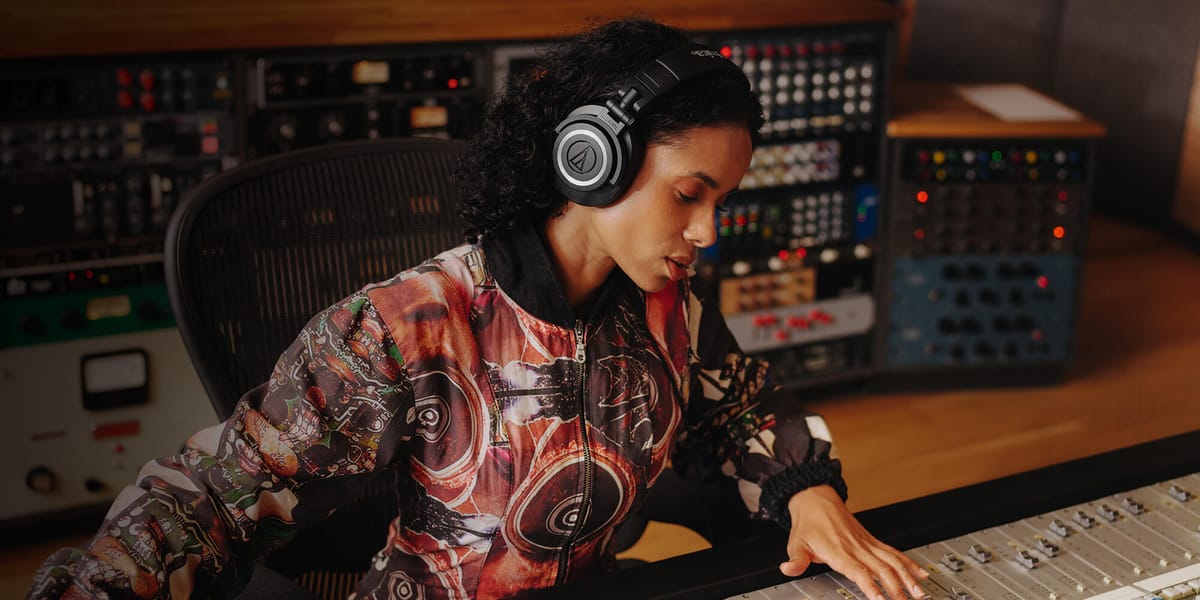Studio Headphones vs. Monitors 2025 — Which Fits Your Space?

Why This Debate Still Matters
In 2025, the choice between studio headphones and monitor speakers is no longer about “which is better” — it’s about which works best for your space and workflow.
With modern room calibration tools, ultra-detailed headphones, and hybrid setups becoming mainstream, the right choice can save you money, improve your mixes, and keep you inspired.
What’s Changed in 2025
- Nearfield monitors are more room-friendly — Many now feature built-in DSP room correction (e.g., Genelec Smart Active, Kali Audio IN-Series).
- Studio headphones are going open-back for mixing — With better spatial imaging and flatter frequency responses than ever.
- Hybrid monitoring is the new normal — Switching between headphones and monitors mid-project is now a workflow standard.
- Room treatment optional for some — In small spaces, DSP-corrected monitors and high-end open-backs can skip heavy acoustic work.
When to Choose Headphones
Pick headphones if:
- You work in an untreated or shared space.
- You produce late at night and need to keep quiet.
- You travel and want a consistent listening environment.
- You want ultra-detailed listening without room coloration.
Pro tip: For mixing, choose open-back models for a wider soundstage and more natural imaging. For tracking or DJ use, stick with closed-back to avoid bleed.
When to Choose Monitors
Pick monitors if:
- You have (or can add) basic acoustic treatment.
- You want to physically “feel” the low end.
- You mix for playback on speakers (clubs, cars, living rooms).
- You prefer a more natural stereo field without headphone fatigue.
Pro tip: Even budget monitors benefit hugely from correct placement — form an equilateral triangle with your head and toe-in slightly toward your ears.
Quick Self-Check Test
- Clap your hands — Do you hear flutter echo? Monitors will suffer here.
- Play a bass-heavy track — Is low end consistent across your space? If not, headphones might be safer.
- Work for 30 minutes on each — Which leaves you more focused, less tired, and more confident in your decisions?
Tech Trends to Watch
- DSP Calibration Everywhere — Even sub-€500 monitors now include onboard EQ or auto-calibration mics.
- Planar Magnetic Headphones Going Mainstream — Audeze, Hifiman, and others pushing detail and speed for mixing.
- Immersive Audio Ready Gear — Headphones with head-tracking, monitors tuned for binaural/Atmos compatibility.
- USB-C Monitors & Headphones — Direct plug-and-play with laptops and tablets, no interface needed.
Hybrid Workflow Shortcut
- Track on monitors for performance energy and stereo placement.
- Mix details on headphones for micro-adjustments.
- Final check — play back on both, plus consumer devices.
This avoids over-reliance on one system and catches translation issues before release.
Upgrade Path
Headphones → Hybrid: Add a pair of compact monitors and basic reflection control.
Monitors → Hybrid: Invest in open-back reference headphones for detailed mix checking.
Hybrid → Pro: Integrate room calibration tools (Sonarworks SoundID, Genelec GLM) + acoustic treatment for translation accuracy.
Soundium Note:
The real “right choice” isn’t headphones or monitors — it’s knowing when and how to use each. The best studios in 2025 use both strategically, and even bedroom producers can get pro-level results by thinking hybrid. And yes, we can help you pick the perfect match for your room and budget.